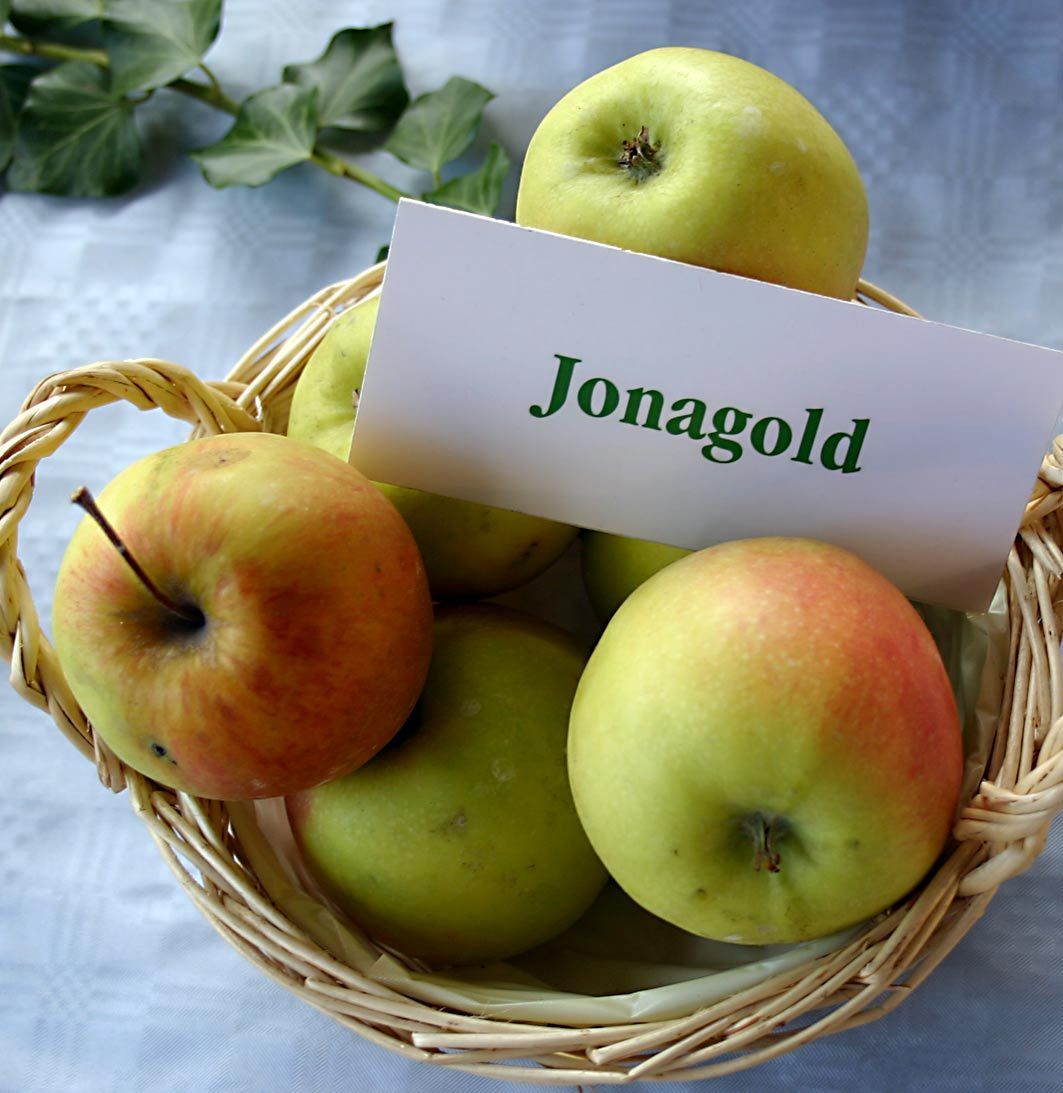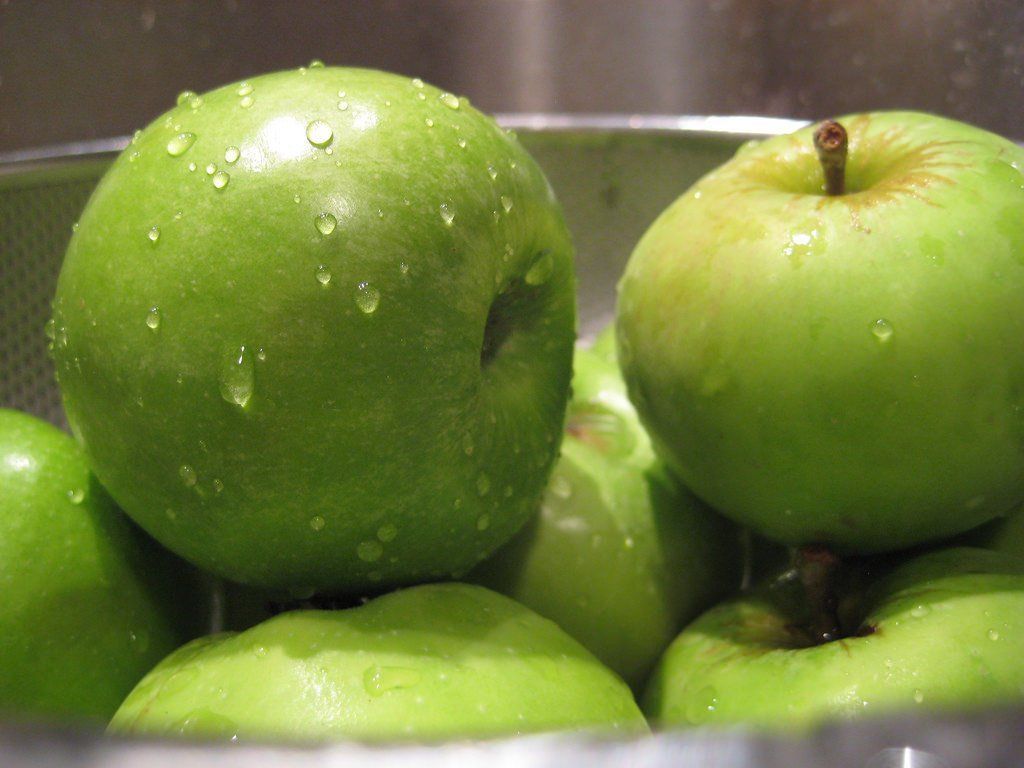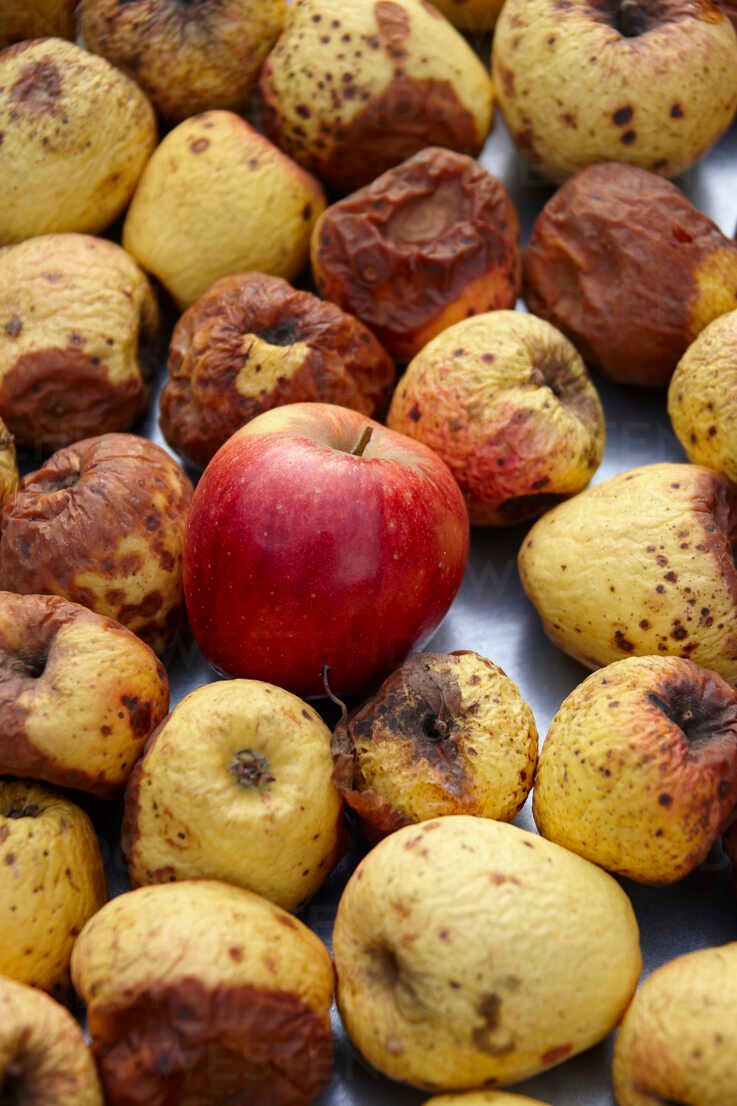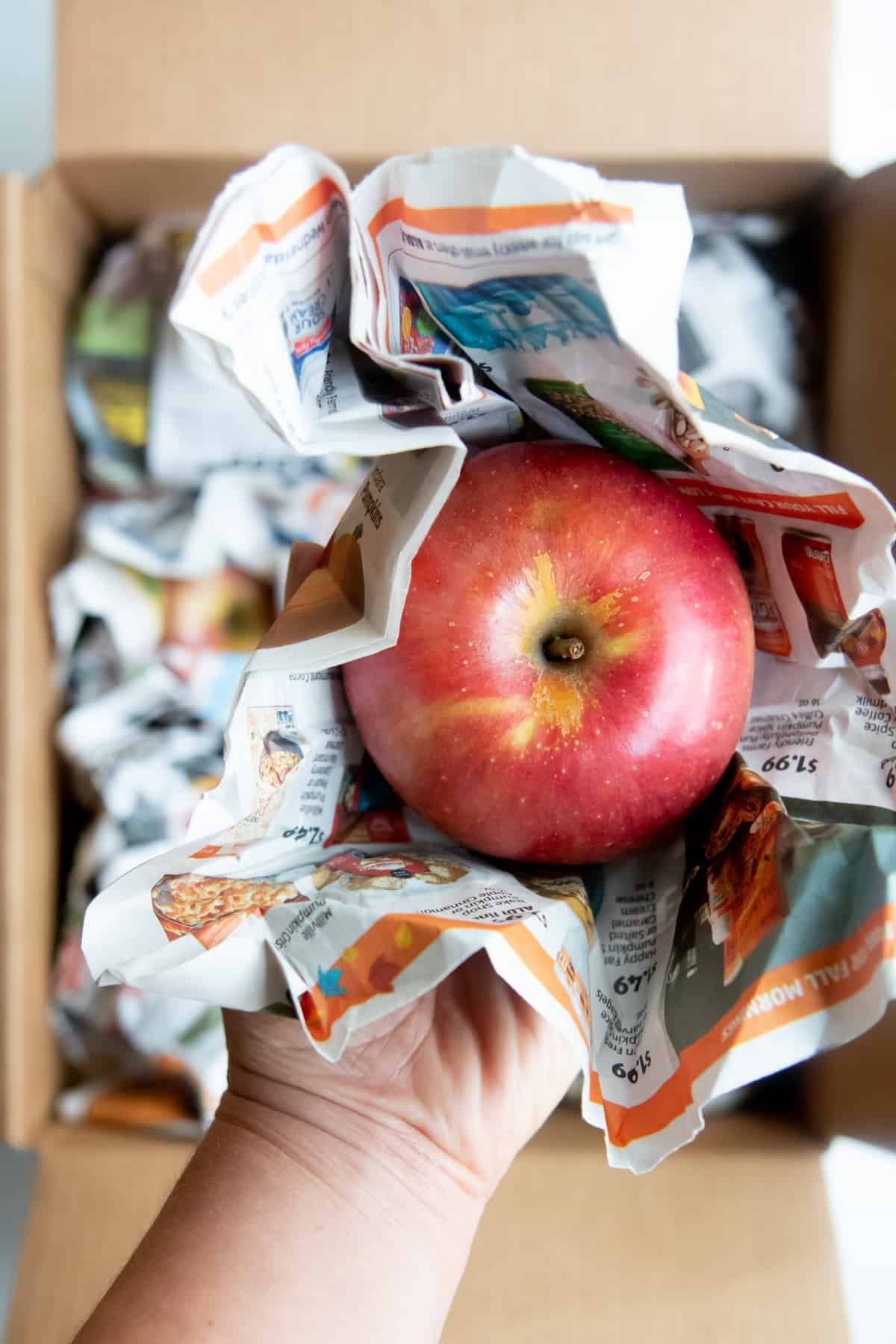Our recommendations are made independently. We may receive commissions from purchases made via our links.
How to Store Apples
Despite being incredibly healthy and tasty, apples don’t last long without the proper storage methods. See how to store apples in this short storage guide!
Nothing beats sinking your teeth into a fresh, juicy apple on a scorching hot day. But while we can’t argue they’re delicious, apples generally don’t last long.
This is why it’s so important to know how to store apples properly.
If you don’t store it well, your rosy apples will turn brown and spoil in only two or three days. On the other hand, when stored right, apples can easily last for months.
Here is what you can do to keep your apples fresh for an extended amount of time.
The Best Types of Apples for Storage

One kind of apple will have a different shelf life to another. This is why you have to think carefully about your selection prior to purchasing.
If you intend to buy apples simply for snacking and think you can finish them off in a few days, choose thin-skinned, sweet apples. Gala, Golden Delicious, and Jonagold apples meet these criteria.
However, because of these attributes, they tend to ripen very quickly and thus spoil faster.
On the other side of the coin, you have thick-skinned, tart apples like Granny Smith, McIntosh, Empire, and Rome apples. They ripen more slowly and are less prone to spoilage, making them perfect for long-term storage.
Due to climate differences, each state has a distinctive set of natively-grown apples. You can find which kind is available in your state online. As an example, here is a list of all apple varieties grown in Connecticut.

How to Decide Which Apple to Store
Not all of the apples you purchase will be in perfect shape. Some will be dented or have brown and mushy spots. These imperfect apples should be used for snacking or cooking, not storage.
Only select the most pristine apples for storage. This way, your apples will last longer.
You should definitely try to avoid bad, rotten apples. If you find one or two in the bunch, throw them out immediately. The popular saying “one bad apple spoils the whole barrel” isn’t embroidery. If you store bad apples alongside healthy ones, they will cause the whole bunch to rot quicker.
This is because rotten apples produce a lot of ethylene, which is a colorless, harmless gas that can expedite ripening. Overexposure to ethylene eventually turns other apples in the bunch bad.
In some cases, it could be the fault of certain strains of bacteria that are also found in rotten apples. They can cross-contaminate to others in the bunch, causing disease and rotting.
The Best Ways to Store Apples
There are two ways to store apples: in the basement or in the fridge.
Storing apples in the basement is recommended if you live in an area with cool weather. If you don’t have a basement, an outdoor shed, or the garage may also do the trick.
Use a thermometer and a hygrometer to check out the condition of your storage place. Ideally, the temperature should be between 30°F and 32°F with a humidity of 90%.
It is very important that you keep the temperature no lower than 30°F and no higher than 40°F. Lower, and the apples may suffer from chill damage. Higher, and the ripening process will quicken, making your apples spoil quicker than they should.
In hotter regions, where this method isn’t feasible, you can use a refrigerator instead. The crisper drawer has the correct temperature and humidity level to maintain your apples’ quality.

How to Store Apples Long Term
1. Store in Your Basement
Once you have sorted out the best apples for storage, the next thing to do is to sort them by size. Separate them into batches of small, medium, and large apples. Larger apples don’t last very long, so make sure that you finish them first.
If you purchase different varieties of apples, it’s also a good idea to separate each variety into a different bucket. One variety may ripen quicker than the other, so use the ones that ripen quickly first, and leave the slower ones behind until they fully ripen.
Each apple should be wrapped in a sheet of newspaper. If one of them was to spoil, the paper will protect the others from ending up with the same fate.
Store the wrapped-up apples in cardboard boxes or fruit baskets. The storage vessel doesn’t have to be airtight; limiting air circulation alone will suffice.
That’s about it! Put the boxes of apples in your preferred storage place, and make sure to check on the apples once every few days for signs of spoilage. If you find any, throw the bad apples out.

2. In the Fridge
Sort the apples using the same procedure as before.
Wrap each apple in some paper towels. Aside from protecting the apple from spoiling, it will also lock in moisture and help keep the fruit fresh.
Place the wrapped-up apples in a plastic bag. Then punch a few ventilation holes in the bags to allow the apples to ‘breathe’.
Place the bag in the crisper drawer of the fridge. This compartment has the most suitable temperature and humidity levels for storing apples.
Can You Store Apples and Oranges Together?
Every fruit and vegetable produces a small amount of ethylene. Ethylene can quicken the ripening process of any fruit or vegetable it comes into contact with.
However, some fruits and vegetables are more sensitive to ethylene than others. They can spoil extremely quickly if they’re exposed regularly to the gas. Among this list of ethylene-sensitive produce are oranges.
For this reason, avoid storing apples and oranges in the same drawer in the refrigerator, or even together in the same fruit basket on the countertop. Just keep these two as far away from one another as possible.
Conclusion
Learning how to store apples isn’t exactly difficult. Yes, you have a lot more to take into consideration compared to other fruits. But, with practice, it will become second nature.
So go on, head out, purchase a bushel of fresh apples, and try one of these handy tricks!





